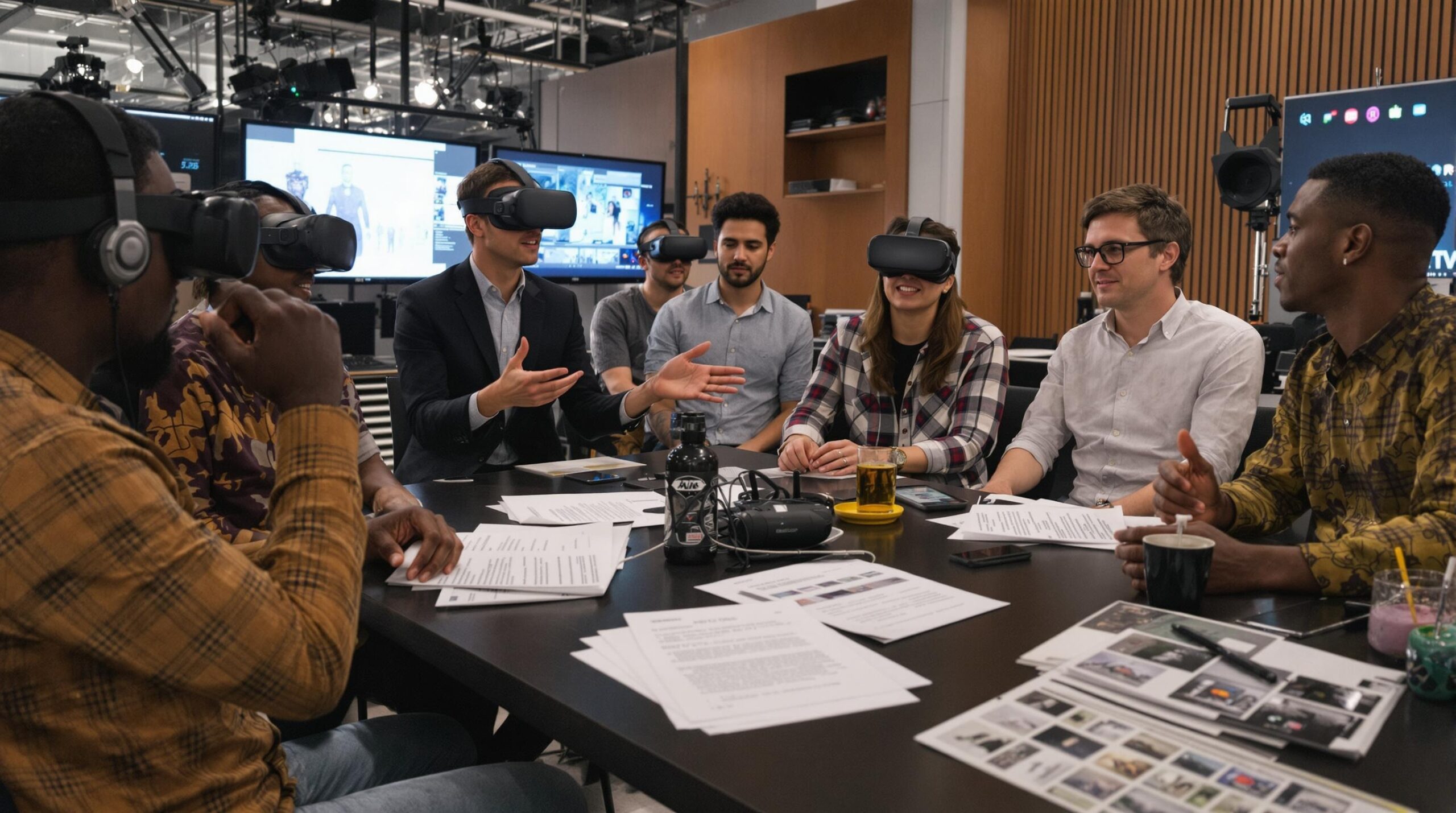Artificial Intelligence (AI) is steadily entering various industries, and Hollywood is no exception. With its potential to streamline processes and generate creative content, AI promises to transform the entertainment industry. It could revolutionize how films are conceptualized, created, and even consumed. This article explores the growing impact of AI on Hollywood’s creative process.
The Integration of AI in Scriptwriting
AI is already making headway in scriptwriting. Screenwriting is a complex process requiring imagination, structure, and character development. Traditionally, this is a painstaking task for human writers. AI, equipped with advanced natural language processing algorithms, can now generate script drafts. Programs like ScriptBook provide insights on potential screenplay success based on data analysis, offering writers a new perspective.
AI can analyze countless scripts and identify patterns that resonate with audiences. It compiles data from box office hits and acclaimed films, allowing it to generate promising storylines. However, AI’s role isn’t to replace human creativity but to complement it. AI will enable screenwriters to focus on artistic elements by providing data-driven insights. The fusion of AI’s analytical ability and human creativity can redefine scriptwriting in Hollywood.
AI in Visual Effects and Animation
Visual effects (VFX) and animation have long been pillars of modern filmmaking. AI’s introduction into this domain promises revolutionary changes. AI technology can optimize complex processes, reducing both time and cost. Machine learning algorithms can generate digital characters and environments with unprecedented accuracy and speed. This advancement reduces the workload on artists, allowing them to focus on creative aspects.
Moreover, AI facilitates the creation of realistic digital actors. Deepfake technology can superimpose faces onto stunt doubles, creating lifelike performances without additional shooting. AI can also enhance animation by simulating realistic movements, providing a seamless viewer experience. By integrating AI, filmmakers can push visual storytelling boundaries like never before.
Enhancing Marketing and Audience Engagement
Marketing is an essential aspect of the film industry. AI’s data processing capabilities can revolutionize marketing strategies by providing detailed audience insights. AI analyzes social media trends, audience demographics, and viewing patterns to tailor marketing campaigns. Filmmakers can create targeted advertising strategies that resonate with specific audiences, maximizing reach and engagement.
Additionally, AI can optimize content distribution algorithms, ensuring films reach their intended audience effectively. This transformation extends to crowd prediction models, where AI forecasts a film’s success based on historical data. As marketing becomes more data-driven, AI assists filmmakers in making informed decisions to captivate audiences.
AI-Powered Personalization and Interactive Viewing Experiences
AI enables personalized viewing experiences, reshaping how audiences consume content. Personalized recommendations streamline content discovery, enhancing viewer satisfaction. Algorithms consider a user’s viewing history, preferences, and behavior to offer tailored suggestions. Streaming platforms like Netflix and Amazon Prime utilize such algorithms to retain user engagement.
Furthermore, AI fosters interactive viewing experiences through personalized narratives. Interactive films let viewers make choices affecting the storyline. AI adapts these narratives in real time, offering diverse experiences. This innovative approach caters to modern audiences seeking immersive content. Hollywood’s embrace of AI-powered personalization could redefine cinematic experiences.
Ethical Concerns and the Human Element
AI’s growing influence raises ethical questions and concerns about preserving the human element in filmmaking. Critics argue AI might stifle creativity, leading to formulaic films. There’s concern about the authenticity of AI-generated actors and their impact on human actors’ livelihoods.
Moreover, data privacy is a significant concern as AI requires data for practical analysis. Protecting sensitive user information remains crucial. Producers must balance AI’s advantages with ethical considerations to preserve creative integrity. Striking this balance ensures AI enhances rather than detracts from Hollywood’s artistic essence.
Transitioning to an AI-Augmented Creative Future
Industries worldwide experience the transformative effects of AI, and Hollywood is no different. Embracing AI presents challenges and opportunities, requiring a robust approach from creators, technologists, and stakeholders. Cooperation can lead to an innovative future in which AI acts as a collaborator in storytelling.
AI challenges traditional filmmaking methods, urging the industry to adapt while retaining its core creativity. As AI continues to evolve, filmmakers must assess its role responsibly. By merging AI’s analytical capabilities with human intuition, Hollywood has the potential to transform its creative landscape profoundly. This fusion promises to produce stories that captivate and resonate with global audiences.
Conclusion: A New Era Beckons
The potential of AI to transform Hollywood’s creative process is exciting and challenging. While AI offers numerous benefits, preserving creativity amidst technological advancement remains imperative. As AI technologies continue to mature, their role in filmmaking is expected to grow.
Hollywood’s adaptation to AI will dictate the industry’s future. Embracing AI’s potential will allow filmmakers to create richer, more engaging cinematic experiences. The challenge lies in ensuring AI is a tool to enhance creativity, not replace it.
The stage is set for a new era in filmmaking, driven by a harmonious blend of artificial intelligence and human creativity. As this transformation unfolds, the stories conveyed on screen will undoubtedly reflect the innovative spirit of this digital age. With AI as a collaborator, Hollywood’s creative journey is poised to enter uncharted territories where imagination has no bounds.


